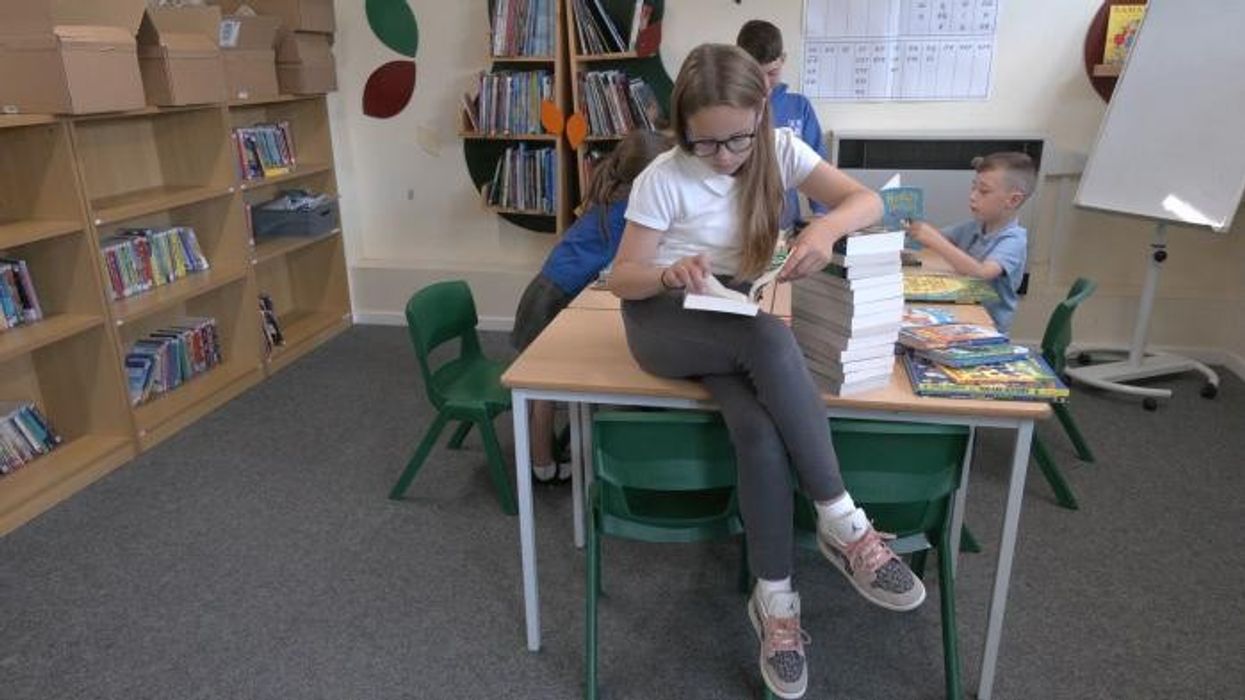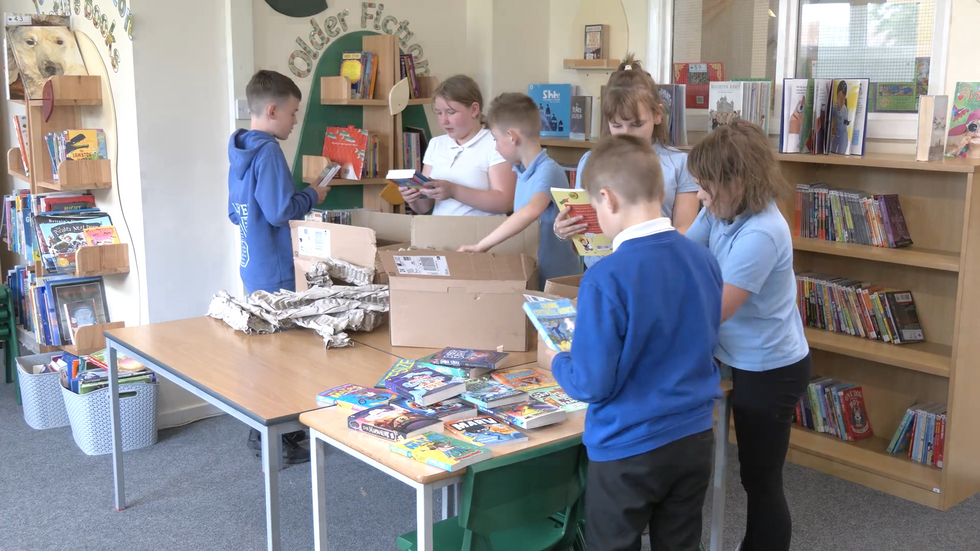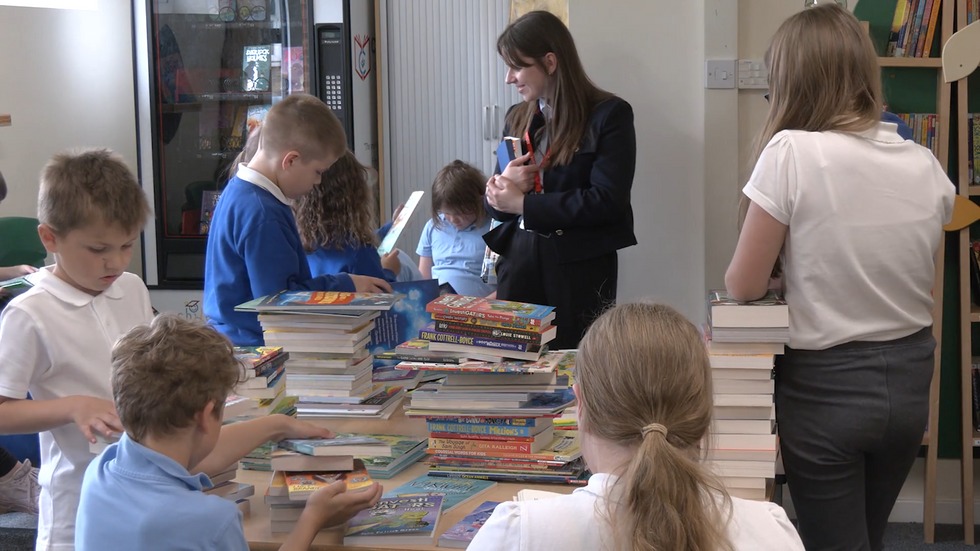British kids losing love of reading as Gen Z parents say it is 'not fun'

WATCH: Pupils benefit from book scheme as figures show 1 in 4 leave primary school unable to read well |
GB News
A HarperCollins report found parents are losing the love of reading aloud to their children
Don't Miss
Most Read
Trending on GB News
Reading enjoyment among children and young people in the UK has fallen to its lowest level in two decades, with a steep decline among primary-aged children, new research has shown.
It follows similar reports earlier this year that show more than half of Gen Z parents think that reading to their child is boring, believing it is more of a chore than a “fun thing to do”.
Studies have shown that as the first generation to grow up in the tech world, Gen Z are setting a bad example by turning to smartphones and tablets over bedtime stories.
A gender gap in how often children read also continues to widen, as girls reported reading at least once a day at much higher rates than boys, and were more likely to read for wellbeing and emotional support.
Some 114,970 children and young people from UK schools aged between five and 18 were surveyed in the National Literacy Trust’s annual report.
Results showed that just one in three eight-to 18-year-olds said they enjoyed reading “very much” or “quite a lot” in the past year, a number reflected in the fewer than one in five who said they read daily.
The worrying reading enjoyment and frequency figures are at the lowest levels since records began in 2005, and since then, the number of children and young people who enjoy reading has fallen by 36 per cent.
The number who read in their free time has also plummeted over the past two decades, halving from 38 per cent to 19 per cent.

Oldfleet Primary School in Hull
| GB NEWSChief Executive of the National Literacy Trust Jonathan Douglas admitted this year’s data was “once again stark,” presenting “a critical challenge for literacy, wellbeing, and life chances”.
He added that “there are especially steep declines among primary-aged children and with boys, and this is concerning as we know that children who do enjoy reading read more frequently. This has a hugely positive impact on their reading skills, their wellbeing and ultimately their prospects”.
A HarperCollins report published in April concluded that parents are losing the love of reading aloud to their children, with a growing percentage of Gen Z parents viewing reading as “more of a subject to learn than a fun thing to do”.
Alison David, Consumer Insight Director at Farshore and HarperCollins Children’s Books, said: “As the first generation to grow up with technology, Gen Z parents may turn to digital entertainment for fun rather than books.”

Pupils at Oldfleet Primary School
| GB NEWSShe also noted in the report that “growing up without a happy reading culture at home means children are more likely to associate reading with schoolwork, something they are tested on and can do well or badly, not something they could enjoy.”
There is growing concern that a lack of early exposure is ensuring the recorded yearly decline of children’s reading enjoyment.
David explained the clear connection between reading engagement and enjoyment.
“Children who are read to daily are almost three times as likely to choose to read independently compared to children who are only read to weekly at home.
“It’s never too late to start, or resume, reading with children.”
Despite the negative impacts of today’s digital age on reading engagement, the National Literacy Trust predicts that it could play a key role in reconnecting children to the pastime.
A spokeswoman for the organisation told GB News “encouragingly, children who are currently disengaged with reading did tell us that they do still read non-traditional formats – including song lyrics, news articles, comics, and fan fiction.
“One of the most impactful ways to encourage children and young people to read for enjoyment is to meet them where they already are and validate their interests, and our latest research supports this.
“Reading about their interests or hobbies can change a child’s view of reading – whether that’s reading football books, comics or a book that inspired their favourite TV series.
“Any genre or format could be the gateway for a child developing a lifelong love of books that will benefit them in the long term.”
More From GB News










